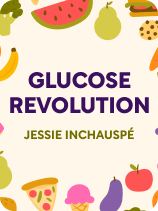

This article is an excerpt from the Shortform book guide to "Glucose Revolution" by Jessie Inchauspé. Shortform has the world's best summaries and analyses of books you should be reading.
Like this article? Sign up for a free trial here.
What is type 2 diabetes? How does type 2 diabetes develop? More importantly, what are some preventive measures you can take to avoid it?
Type 2 diabetes is a chronic medical condition where your body cannot use insulin properly, resulting in the build-up of glucose in your bloodstream. Not only is this disease dangerous in and of itself, but it can also increase your risk of other health conditions, including heart disease and atherosclerosis.
Keep reading to learn how type 2 diabetes develops and some measures you can take to prevent it.
Type 2 Diabetes
How does type 2 diabetes develop? Type 2 diabetes is the condition that’s most commonly associated with increased glucose levels. It results from the relationship between glucose and insulin: First, when we experience glucose spikes, the pancreas releases insulin to store away the excess glucose as glycogen in the liver, muscles, and fat. The more glucose there is, the more insulin is released, and the more glucose has to be stored as fat.
Second, as the pancreas releases more and more insulin, our cells become resistant to the hormone. Because of this resistance, larger quantities of insulin are needed to store the same amount of glucose as glycogen.
Eventually, the storage system fails—the body can’t store glucose as glycogen anymore. With nowhere and no way to store glucose molecules, their concentration in our bodies increases permanently.
Screening for and Preventing Type 2 Diabetes
Type 2 diabetes is a well-known disease because it’s extremely prevalent—the CDC states that nearly half of US adults have type 2 diabetes or prediabetes. Still, it’s estimated that over 80% of people with prediabetes and a quarter of people with diabetes aren’t diagnosed.
This is a serious problem, as unchecked type 2 diabetes can have heavy consequences on the body. For example, persistently elevated glucose levels that arise when the body can’t store glucose anymore—the condition known as hyperglycemia—can cause numerous other health issues such as vision loss, nerve damage, kidney disease, and slow wound healing.
Many clinicians recommend being screened for diabetes if you’re between 35 and 70 years old, especially if you’re overweight—the earlier both prediabetes and type 2 diabetes are diagnosed, the easier they are to treat.
You can also make changes to your lifestyle that help prevent type 2 diabetes and even reverse the effects of prediabetes. For example, some research indicates that coffee may help prevent type 2 diabetes by lessening the effects of insulin resistance. One study found that having an extra cup of coffee a day reduced the risk of diabetes in participants by 4% to 6%.
Increased coffee consumption led to lower levels of markers that indicate inflammation and higher levels of anti-inflammatory markers. Specifically, coffee consumption increased levels of one anti-inflammatory marker called adiponectin, which helps make the body more sensitive to insulin and lower glucose levels. (However, if your glucose levels are particularly sensitive to caffeine, as we explored earlier, excessive coffee consumption may exacerbate your glucose-related health issues.)

———End of Preview———
Like what you just read? Read the rest of the world's best book summary and analysis of Jessie Inchauspé's "Glucose Revolution" at Shortform.
Here's what you'll find in our full Glucose Revolution summary:
- Why you feel hungry soon after you eat and get tired throughout the day
- The role glucose plays in your body, both positive and negative
- Strategies for taking control of your health and glucose levels






